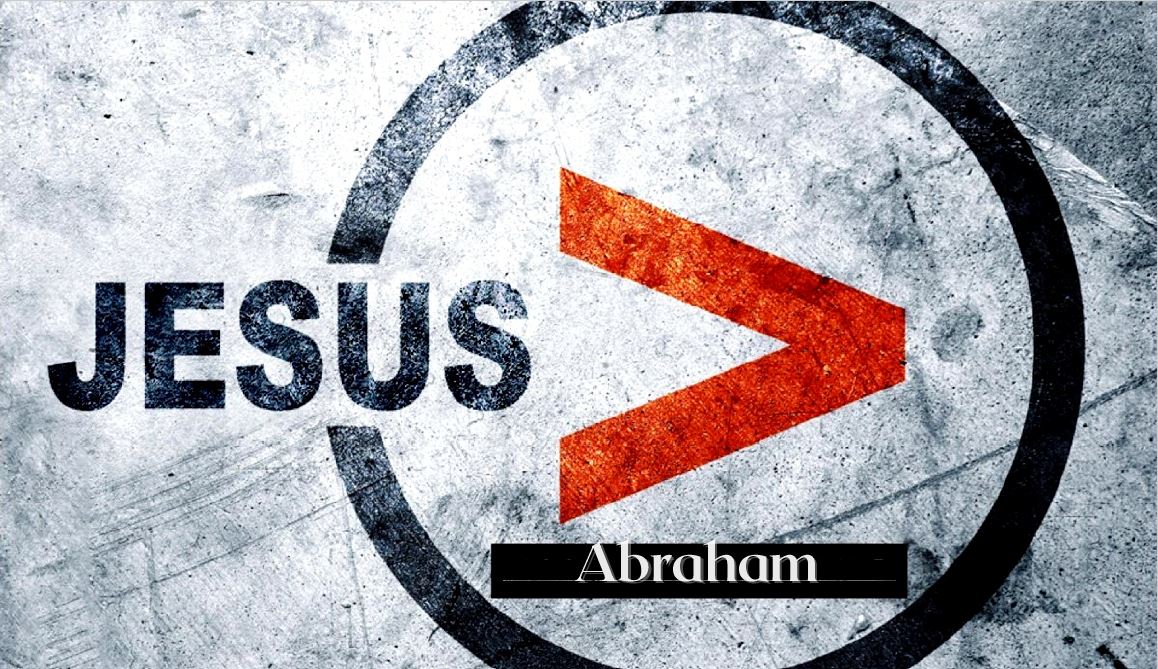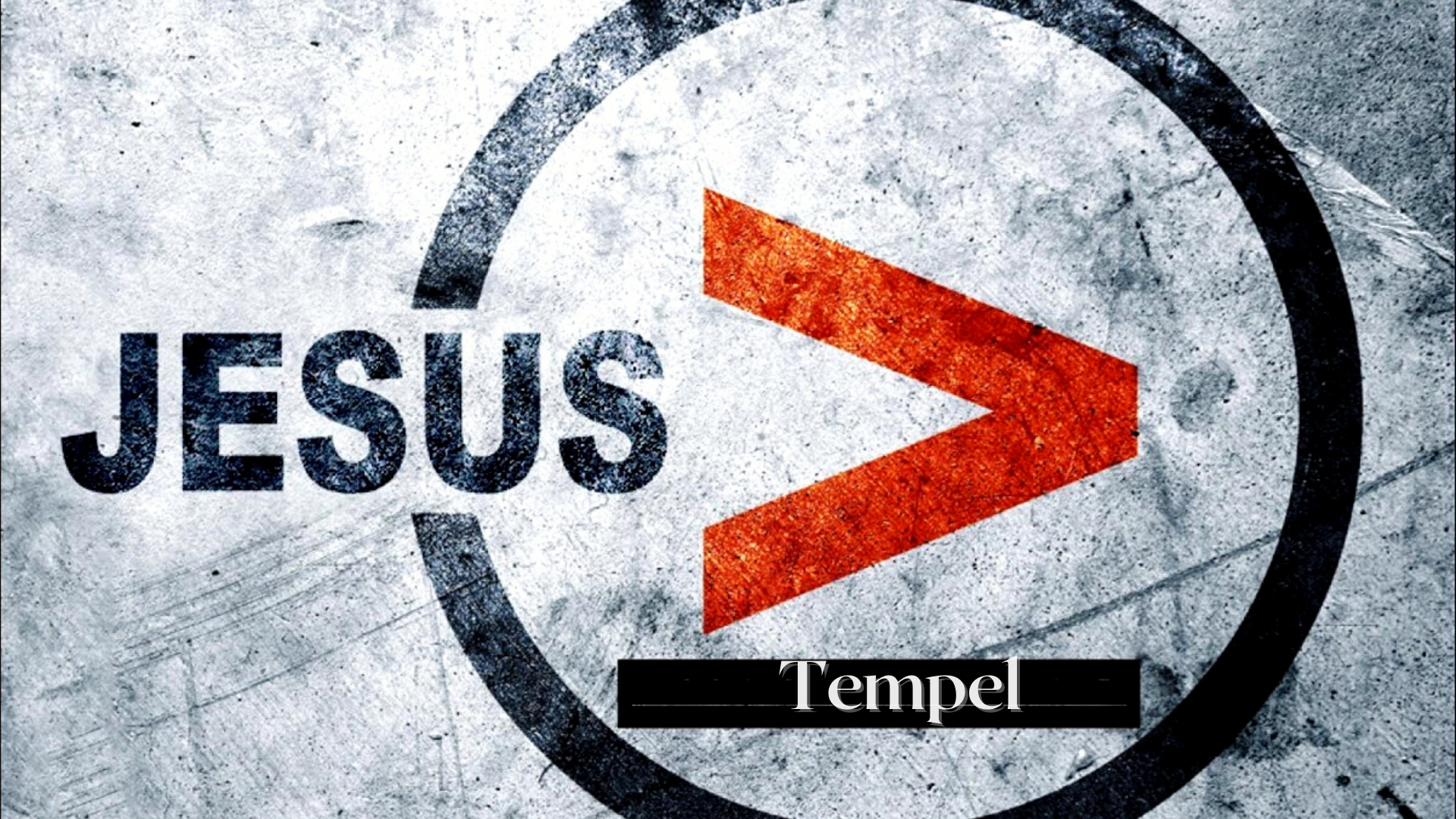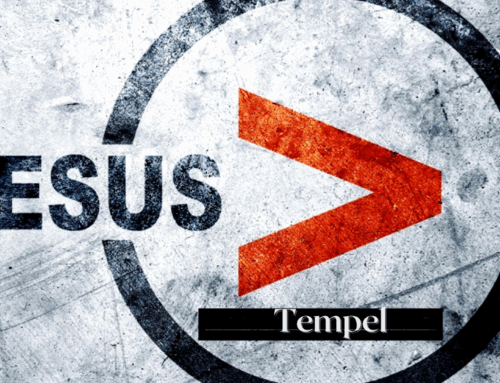Jesus, greater than Abraham
Summary:
God promised Abraham that He would multiply his descendants as countless as the stars in the sky and the sand on the seashore (Genesis 22:17). He is honored by Jews, Muslims, and Christians—the three Abrahamic world religions. As the patriarch of Israel, a prophet in Islam, and a model of faith in Christianity, he unites billions of people across history, just as God declared. In John 8:53 the Pharisees challenged Jesus, asking, ‘Are you greater than our father Abraham?’ The answer is clear: Yes, He is! James calls Abraham the friend of God, but Jesus is the Son of God and Lord of all creation. Abraham was the father of faith, but Jesus is the object of that faith. Abraham was chosen, but Jesus is the Chooser. God made a covenant with Abraham, but Jesus fulfilled this covenant. Abraham received promises, but Jesus is the promise fulfilled. Abraham was spared from drinking the bitter cup when asked to offer Isaac, but Jesus drank the bitter cup fully, offering Himself on the cross so that we could be forgiven. Most importantly, Jesus brings people from every tribe, tongue, and nation into God’s family, offering eternal life to all who believe in Him.
Introduction
At the time of Jesus, Judaism stood at the height of its history. The Temple stood in Jerusalem, sacrifices were offered, festivals were celebrated. Into this time came an unknown preacher from Nazareth. Many followed him, but many others struggled to understand why anyone would leave the safe harbor of Judaism to follow a seemingly insignificant teacher from Galilee.
In Hebrews we can read that Jesus is greater than Judaism itself. He is greater than the prophets, greater than the angels, greater than the Law, greater than Moses, greater than Joshua, and greater than the priesthood. He is a greater temple, offers better promises, is the perfect sacrifice, and establishes a better covenant with humanity. Jesus makes clear that he is greater than every other way of life. Because of this, we as believers are encouraged: be proud of Jesus and remain strong in faith.
Greater than Abraham
Today we will be looking to the passage John 8:48–59, where Jesus makes it clear, that he is greater than Abraham. This scene takes place on the Temple Mount shortly after the Feast of Tabernacles. Jerusalem was crowded and full of celebration. We do not know how many people listened to Jesus—perhaps fifty, perhaps one hundred fifty—but many were struck by the authority with which he spoke about God. Among the crowd were religious leaders who opposed him, sought to silence him, and even plotted to kill him. Beginning in verse 31, Jesus speaks to those who believed in him, but soon enters into a heated debate with the religious leaders, a debate that escalates until they want to stone him.
In verses 48–53 we read:
Truly, truly, I say to you, if anyone keeps my word, he will never see death.
The leaders respond:
Now we know that you have a demon! Abraham died, as did the prophets, yet you say, ‘If anyone keeps my word, he will never taste death.’ Are you greater than our father Abraham, who died? And the prophets died! Who do you make yourself out to be?
Jesus’ words angered the leaders. His statement—“If anyone keeps my word, he will never taste death”—only makes sense if he is God himself, united with the Father. What he promises is eternal life to those who keep his word. Jesus is greater than death. In him, death has no sting, and the grave has no victory. That makes him utterly unique.
The leaders, however, try to trap him. They push him to claim something they could accuse as blasphemy. Their pointed question is: “Are you greater than Abraham?”
This is the core of the confrontation. Jesus claims something that only God can give: life beyond death. His authority surpasses Abraham and the prophets, because in him lies eternal victory.
Abraham: The Father of Nations and Believers
Abraham was the honored patriarch, the father of the Jewish people. Let’s consider some remarkable facts about him: In the Bible, his name appears 312 times in 272 verses, making him one of the most famous figures in the Old Testament and one of the most influential person in world history. The book of Genesis covers about 2,000 years and twenty generations, however one third of it is dedicated to the life of Abraham. What makes Abraham unique is that he is called a friend of God. Abram grew into Abraham and became a giant of faith, known as the father of all believers. Yet he was not a hero of faith from the beginning. He serves as an example of how a person can grow in faith and obedience.
God made a promise to Abraham: “I will make your name great.” No other name in human history has been more honored than his. He is revered by Jews, Muslims, and Christians, the three Abrahamic world religions. The Jewish people regard him as their tribal father and the first Jew, tracing their lineage back to him. If you really want to tease a Jew, you might ask: “Did you know that the first Jew was originally a pagan?” But Abraham is not only important for them. For us as Christians, the Gospels also trace the genealogy of Jesus back to Abraham.
The Bible shows that people are known for different things, but most of them are not remembered as great in worldly terms. Yet anyone can have great faith, and anyone can be called a friend of God. Among the heroes of the Old Testament, Abraham stands out as a man of faith. This truth is emphasized repeatedly in the New Testament, where it is quoted four times. Paul demonstrates that a person can stand righteous before God not because of what they do or do not do, but because of their faith in God’s promises. All of God’s promises are received only through faith, and God pours out his blessing not on those who believe they have earned it, but on those who trust in his grace.
Abraham’s beginnings
In the beginning, Abraham did not start as a hero of faith. He grew in faith and obedience, and this makes him a model for us. At first, Abram followed God only halfheartedly. God had said:
Go out … to the land that I will show you (Genesis 12).
But Abram did not go the whole way. He stopped halfway, in Haran which means “dried up” or “withered.” It also describes the condition of someone who lives with one foot in the world and the other with the Lord. The most miserable person is the one who follows God halfheartedly. Such a person can no longer truly enjoy the pleasures of the world, but also cannot fully receive the blessings of God.
Only after his father Terah died Abraham continued the journey and completed God’s command. It seems that Terah had held him back from doing God’s will. This raises the question: who is the Terah in your life? What habit, attachment, or prejudice must die before you can become a fully devoted follower of Jesus? True faith often begins with a funeral.
Only when we bury these old desires or habits do we become free to move forward with God.
Pointing to the Cross: Abraham and Isaac’s Test of Faith
The account of Abraham’s test of obedience is a typology that points forward to Jesus Christ. In typology, a person or event in the Old Testament—the type—is connected with something in the New Testament. It is described as the younger brother of prophecy. An example is found in
For as Jonah was three days and three nights in the belly of the huge fish, so the Son of Man will be three days and three nights in the heart of the earth. (Matthew 12:40)
In many Bibles, the heading for Genesis 22 reads “The Sacrifice of Isaac.” Yet we know that Isaac is not ultimately sacrificed. The story has a happy ending. But the account is full of parallels to Jesus. God tests Abraham’s faith by asking him to do something no father could be expected to do: to take his only son Isaac to Mount Moriah and offer him there as a sacrifice. Two thousand years later, another Father would give His only Son on the very same mountain. God the Father sacrificed His Son Jesus on Mount Moriah, which is also known as Golgotha.
The purpose of the test is clear. Abraham demonstrates his unconditional devotion and love for God by being willing to sacrifice his only son. God, in turn, reveals His unconditional love by sacrificing His only Son for us. Isaac carried the wood for the burnt offering up the mountain. Likewise, Jesus carried His cross to Golgotha. Abraham took two men with him, and in the same way, two thieves walked with Jesus on the way to the cross. From Abraham’s perspective, Isaac was already dead when they set out. After three days they arrived at the appointed place, and there the Lord gave Abraham back his son. Figuratively, Isaac was brought back to life. In the same way, Jesus rose from the dead three days later. Isaac did not resist when Abraham laid him on the altar. Jesus also willingly gave His life for us.
True Children of Abraham Believe in Jesus
Turning to John 8, Jesus speaks about His relationship with the Father. In verse 19 He says:
You do not know me or my Father. If you knew me, you would know my Father also.
In verse 38 He continues:
I am telling you what I have seen in the Father’s presence, and you are doing what you have heard from your father.
The Jews claimed Abraham as their father. Yet Abraham would not have rejected the truth or conspired to kill Jesus. They were Abraham’s descendants by blood, but not his children in a spiritual sense. In verse 41 they respond:
We are not illegitimate children. The only Father we have is God himself.
They had likely heard of the virgin birth through their investigation into Jesus’ background but chose to reject it. Jesus tells them that if Abraham truly were their father, they would believe Him.
Later, in verse 53 they ask:
Are you greater than our father Abraham? He died, and so did the prophets. Who do you think you are?
Jesus answers in verses 54–57:
If I glorify myself, my glory means nothing. My Father, whom you claim as your God, is the one who glorifies me. Though you do not know him, I know him. If I said I did not, I would be a liar like you, but I do know him and keep his word. Your father Abraham rejoiced at the thought of seeing my day; he saw it and was glad.
The Jews replied,
You are not yet fifty years old, and you have seen Abraham?
Here Jesus answers the Pharisees’ question. He does not merely claim to be greater than Abraham but states that Abraham himself rejoiced to see His day. This means that Abraham, who lived two thousand years earlier, saw Jesus by faith and rejoiced in what God revealed to him. Thus, the story of Abraham and Isaac not only foreshadows Jesus but also points to the truth that Abraham himself anticipated the coming of Christ.
Abraham at Mamre: A Glimpse of the Pre-Incarnate Christ
How could Abraham, who lived two thousand years before the time of Christ, have seen Jesus? The answer is sought in Genesis 18, where it is written:
And the LORD appeared to him by the oaks of Mamre, while he sat at the door of his tent in the heat of the day. He lifted up his eyes and looked, and behold, three men were standing in front of him. When he saw them, he ran from the tent door to meet them and bowed himself to the earth (Genesis 18:1–2).
Later in verse 13 it says:
The LORD said to Abraham: Why did Sarah laugh and say, ‘Shall I indeed bear a child, now that I am old?’
One of the three men is referred to as “the LORD.” In Hebrew, the text uses the name Yahweh, the holy name of God. This raises a question, since Scripture also says that no one can see God and live. When Moses asked to see God, he received the answer:
You cannot see my face, for man shall not see me and live (Exodus 33:20).
The explanation lies in the Son of God. Jesus can be seen. What Abraham encountered was a pre-incarnate appearance of Christ. Jesus revealed himself to Abraham as one of the three men who came to Mamre.
Jesus Declares His Deity
In John 8, Jesus responds to the question of how Abraham could have seen him:
Truly, truly, I say to you, before Abraham was, I am (John 8:58).
At this, the people picked up stones to kill him, as verse 59 tells us:
So they picked up stones to throw at him, but Jesus hid himself and went out of the temple.
Here Jesus makes a deliberate and shocking statement. By using the words “I am,” he takes the divine title revealed to Moses at the burning bush.
God said to Moses, ‘I am who I am’ (Exodus 3:14).
Jesus applies this title directly to himself, declaring openly that he is God. The Jewish leaders understood exactly what he meant. They did not accuse him merely of claiming to be greater than Abraham. They saw him as making himself equal to God, which to them was blasphemy and worthy of death. That is why they tried to stone him.
But it was not yet the appointed time of Jesus’ suffering and death. He passed through the crowd unharmed, for his hour had not yet come.
If you abide in my word, you are truly my disciples, and you will know the truth, and the truth will set you free (John 8:31–32)
The true prisons are not built of stone but lie in hearts without faith and in thoughts poisoned by unbelief. Only the Son can set us free in the deepest sense.
End of the Sermon







